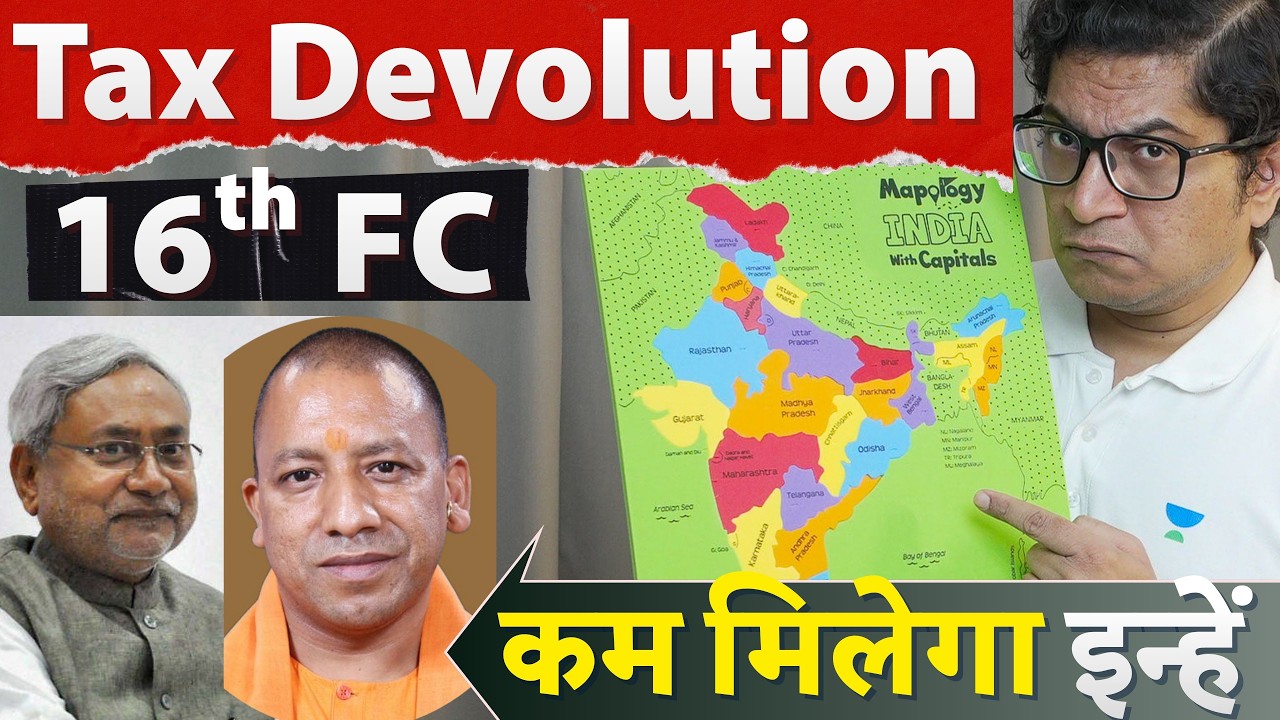Video
He Needs To Divorce Her | Financial Audit

▶ oh guyyyssss, the text messages between him and his young coworker are willldddd- I go through them, and it’s *much worse* than you could ever imagine. Watch here: https://www.youtube.com/channel/UCLe_q9axMaeTbjN0hy1Z9xA/join
▶▶ *FREE TRIAL* To make our classes and budgeting app *more affordable*, we bundled them together for an *80% DISCOUNT* and for this month only, you can try DollarWise Central for *free* – check it out here and change your life: https://dollarwise.com/dollarwise-central/
▶▶▶Download the *DollarWise Budgeting App* today: *Apple:* https://apple.co/4iChGhr *Google Play:* https://bit.ly/sb-googleplay Don’t overcomplicate this crap! All you need is an automated / SIMPLE budget.
▶▶▶▶ *AND REMEMBER* those who sign up for DollarWise Premium *annual* get a signed version of the Cook Book, just submit proof of purchase here: https://tally.so/r/3xzPq5
Use Yrefy to refinance your private student loans today at: https://yrefy.com/hammer or call (888) Yrefy-78
Download the CFO’s guide to AI and Machine Learning at https://netsuite.com/HAMMER
___________________________________________
▶EDUCATION:
1. Get your own free Hammer Financial Score: https://www.calebhammer.com
2. Get all of my educational programs for a much lower cost here, including the premium version of my budgeting app: https://dollarwise.com/dollarwise-central/
___________________________________________
▶RESOURCES
1. *I’VE MOVED MY INVESTMENTS TO WEBULL* do the same and transfer to my investing app of choice here: https://www.webull.com/k/Caleb and you get: *Cash bonus of $200 – $30,000* depending on initial funding amount, up to 8.1% APY, and up to 3.5% IRA Match.
2. Checking & Savings: Get up to $500^ before payday when you sign up and set up direct deposit. No credit check. No interest*. No mandatory fees: https://clickurl.ca/caleb-mypay
3. CourseCareers: Land a high-paying job with no experience or degree by going through an affordable online course https://coursecareers.com/CalebHammer
4. Get $20 from Acorns for free: sign up to get your bonus https://acorns.com/caleb
5. The credit building debit card: First 100,000 people to sign up for Fizz with code: HAMMER10 get $10: https://www.joinfizz.com/caleb (paid ad)
6. Helium Mobile: save a ton on your phone bill, sign up and get a FREE plan when using promo code CALEB https://hellohelium.com/
7. Online security: Protect your online privacy and security NOW and for free by following my link Aura: https://aura.com/hammer
8. Get an exclusive HighLevel 30-day trial: https://gohighlevel.com/calebhammer
___________________________________________
Chapters:
00:00 Intro
06:33 ooo she snitchin’
19:23 she is just exposing it ALL
26:46 what in the red flag
38:10 caleb shut that down quick lol
54:58 f*ck you! go on.
01:11:42 bickering in 4K
___________________________________________
▶More Content
1. Financial Audit Follow-Ups here: https://www.youtube.com/@calebhammerclips
2. Caleb Hammer Livestreams: https://linktr.ee/calebhammerlive
3. Livestream Cutdown VODs: https://www.youtube.com/@livecalebhammer
___________________________________________
▶EXTRA
1. My socials: https://stan.store/calebhammer
2. Want to be a guest on Financial Audit? We film weekdays in our studio in Austin, Texas (in person only)! To apply, visit: http://calebhammer.com/apply
___________________________________________
▶*Some of the links and other products that appear in this video are from companies for which Caleb Hammer will earn an affiliate commission or referral bonus. This is not investment advice.
▶Sponsorship and business inquiries: business@calebhammer.com
source
Video
THIS IS WHY BITCOIN IS DUMPING!!

🟨WEEX: https://www.weex.com/events/promo/usdtgiveaway?vipCode=00dt&qrType=activity 👉 25% FEE DISCOUNT & GET FREE $100
✅My Private Group: https://t.me/alphacartelsetup
Best DEX:
🟧APEX: https://join.omni.apex.exchange/CRYPTOROVER
✅Exchange Tier List: https://www.signupforbonus.com
🟧BYBIT: https://www.bybit.eu/sign-up?affiliate_id=16210 👉 $30,000 BONUS
💹BTTC: https://www.btcc.com/market-promotion/bonus2/s/cryptorover
🟧BLOFIN: https://partner.blofin.com/d/Rover 👉($100K deposit Bonus)
Do not use exchanges which are not allowed in your REGION!
CRYPTOSEA TRADING TOOLS:👇
🚀 SMART BOT: https://cryptosea.com/smart-bot
🔥 PREMIUM INDICATOR: https://cryptosea.com/premium-indicator
BUY & SELL CRYPTO
🎖 BYBIT: $30,050 FREE BTC BONUS!
↳ https://partner.bybit.com/b/CR
MORE CRYPTO ROVER
Second channel about altcoins!
↳ https://www.youtube.com/@AltcoinRover
Twitter for more updates on the market!
↳ https://twitter.com/rovercrc
Instagram if you are interested in my lifestyle!
↳ https://www.instagram.com/cryptorover
Telegram for business inquires!
↳ @cryptoroveryt
DISCLAIMERS
1. High Risk: Bitcoin trading is very risky, with 80% of traders losing money. It is advised primarily for experienced traders.
2. Disclosure: I own a diverse cryptocurrency portfolio for transparency. The content here is for general information and not financial advice.
3. No Professional Advice: Opinions expressed are personal and not from a licensed financial advisor. Investing in cryptocurrencies involves a high risk of loss.
4. Public Information: The information presented is publicly sourced and reflects personal viewpoints. Viewers should conduct their own research before making decisions.
#Bitcoin #BTC #Cryptocurrency #Altcoins #Blockchain
source
Video
The SEVEN Things You NEED To Learn for Your Financial FREEDOM – Robert Kiyosaki

When Robert Kiyosaki was young, his poor dad always told him the best path to success was to go to school. This was and still is advice spread to young people around the globe.
The problem is, what does school teach you about money? Nothing!
Robert’s rich dad, on the other hand, didn’t have a college degree. He had to drop out of school in order to help run his family business, which started as a local store. Yet he was very rich and successful, eventually building a real estate empire complete with a hotel on the beach.
The idea that school will make you a success is perpetrated everywhere and all the time. What will make you rich is not going to school and learning book smarts but rather gaining financial smarts—learning how money works and how to make it work for you.
You need to learn to speak the language of money to be successful. That takes financial education, which opens up a whole new world, a world where you can succeed on your own terms. Unfortunately, our schools don’t teach that language. They teach you the basics, and then they either teach you a specific trade or skill, or they simply train you to be an employee.
Watch and find out the seven things they don’t teach you in school, but that are imperative to financial freedom.
#robertkiyosaki #financialeducation #richdadpoordad
Facebook: @RobertKiyosaki
https://www.facebook.com/RobertKiyosaki/
Twitter: @TheRealKiyosaki
https://twitter.com/theRealKiyosaki
Instagram: @TheRealKiyosaki
https://www.instagram.com/therealkiyosaki/
source
Video
What Happens If You Invest $100 In Crypto Every Month?

Two people begin to invest in crypto, but with different approaches. One throws money at random coins while the other uses a solid **crypto strategy**. The second investor focuses on **risk management** and sees great returns. The video also touches on **investing for beginners** and the overall **crypto market**. Join us- https://x.com/twochairstube?s=21
source
Video
Warren Buffett’s Advice to Investors for 2026

Thanks to Storyblocks for sponsoring this video! Get 2 extra months free with annual plans for a limited-time only: http://storyblocks.com/FinTek
Warren Buffett is the CEO of Berkshire Hathaway, and he is often considered the greatest investor of all time. Today with high market valuations, rising debt levels, increasing market concentration, and the Buffett indicator two standard deviations above normal, his lessons for investing are more important than ever.
In this video I walk through 4 of Buffett’s timeless lessons for investors, focusing on the lessons that can provide us the most insight into how to handle the current market.
🔍 📊 I post daily on Instagram: https://www.instagram.com/realfintek/
— Studies Referenced in the video —
https://www.sciencedirect.com/science/article/abs/pii/0305048392900367
https://pmc.ncbi.nlm.nih.gov/articles/PMC6051602/
https://www.sciencedirect.com/science/article/abs/pii/S2214635016300132
I am not a financial or investment advisor. Everything in this video is for entertainment purposes only. Links above include affiliate commission or referrals, and I receive compensation from partnering websites. The video is accurate as of the posting date but may not be accurate in the future.
source
Video
5 Frugal Habits To Cut Expenses In Half

5 Frugal Habits To Cut Expenses In Half
Order my book, “Know Yourself, Know Your Money”! https://bit.ly/2LIclKS
Ramsey Solutions Privacy Policy: https://www.ramseysolutions.com/company/policies/privacy-policy –
Products:
EveryDollar Premium Version Physical Gift Card: https://store.ramseysolutions.com/money/tools-and-apps/everydollar-premium-version-physical-gift-card/?utm_medium=product_shelf&utm_source=youtube
I’m Glad for What I Have by Rachel Cruze: https://store.ramseysolutions.com/youth/children/im-glad-for-what-i-have-by-rachel-cruze/?utm_medium=product_shelf&utm_source=youtube
Know Yourself, Know Your Money: https://store.ramseysolutions.com/money/books/know-yourself-know-your-money-by-rachel-cruze/?utm_source=youtube&utm_medium=product_shelf
Smart Money, Smart Kids: https://store.ramseysolutions.com/money/books/smart-money-smart-kids-by-dave-ramsey-and-rachel-cruze/?utm_source=youtube&utm_medium=product_shelf
The Total Money Makeover: https://store.ramseysolutions.com/money/books/the-total-money-makeover-by-dave-ramsey/?utm_medium=product_shelf&utm_source=youtube
Financial Peace Kids: https://store.ramseysolutions.com/youth/children/financial-peace-kids/?utm_medium=product_shelf&utm_source=youtube
Questions for Humans: Couples: https://store.ramseysolutions.com/personal-growth/conversation-cards/questions-for-humans-couples/?utm_medium=product_shelf&utm_source=youtube
Breaking Free From Broke: https://store.ramseysolutions.com/money/books/breaking-free-from-broke-by-george-kamel/?utm_medium=product_shelf&utm_source=youtube
I’m Glad for Where I Am: https://store.ramseysolutions.com/youth/children/im-glad-for-where-i-am-by-rachel-cruze/?utm_source=youtube&utm_medium=product_shelf
I’m Glad When I Can Share: https://store.ramseysolutions.com/youth/children/im-glad-when-i-can-share-by-rachel-cruze/?utm_source=youtube&utm_medium=product_shelf
Know Yourself, Know Your Money Hardcover: https://store.ramseysolutions.com/money/books/know-yourself-know-your-money-by-rachel-cruze/?utm_source=youtube&utm_medium=product_shelf
Baby Steps Millionaires: https://store.ramseysolutions.com/money/books/baby-steps-millionaires/?utm_medium=product_shelf&utm_source=youtube
source
Video
Pinterest Affiliate Marketing Se Paise Kaise Kamaye | Earn Money From Pinterest | Beginners Guide

Pinterest Affiliate Marketing Se Paise Kaise Kamaye | Earn Money From Pinterest | Beginners Guide 2026
Pinterest is a powerful platform where you can earn money through Affiliate Marketing.
In this video, I explain step by step:
How to create a Pinterest business account
How to use affiliate links on Pinterest
How to create viral Pinterest pins
How to get free traffic and sales
Best affiliate marketing tips for beginners
If you want to earn money online, work from home, or learn affiliate marketing, this video will help you understand everything clearly.
my Telegram Link
https://t.me/rohitrajmotivation1
Note: Your earnings depend on your skills, efforts, consistency, and strategy.
Pinterest affiliate marketing
Pinterest affiliate marketing for beginners
How to earn money from Pinterest
Pinterest money making
Earn money online from Pinterest
Affiliate marketing on Pinterest
Pinterest affiliate income
Pinterest marketing strategy
Pinterest business account
Pinterest traffic for affiliate marketing
Free traffic affiliate marketing
Affiliate marketing without website
Pinterest passive income
PinterestAffiliateMarketing
#EarnMoneyFromPinterest
#AffiliateMarketing
#MakeMoneyOnline
#OnlineEarning
#WorkFromHome
#PinterestMarketing
#AffiliateMarketingForBeginners
#PinterestBusiness
#PassiveIncome
#FreeTraffic
#DigitalMarketing
#OnlineBusiness
#SideHustle
#InternetMarketing
source
Video
16th Finance Commission Tax Devolution Formula – UP Bihar lose, South States gain| Dr. Mrunal Patel

Links
– 🔓 3 DAY Unlock All UPSC Courses- https://unacademy.com/subscription/free-trial?referral_code=mrunal.org&goal_uid=KSCGY
– 💾 PPT download (Mon-Night) https://unacademy.com/content/upsc/mrunal-patel/
– 👩🏻🏫 5th Jan se Win26 series https://unacademy.com/class/mrunals-win26-economy-pill1-rbi-banking-upi-bitcoin/HF65PKYC
– 🎁 8th Sunday Mock Test on Budget – https://unacademy.com/scholarship/UCSC
Timestamps
00:00 – Budget hides Finance Commission
00:40 – Vertical devolution at 41%
01:20 – Horizontal formula- 15th vs 16th FC
02:40 – Income Distance 42.5%
04:10 – Population weight increased
05:40 – Demographic Performance 10%
07:00 – Area & Forest criteria changes
08:30 – New GDP Contribution criterion
10:20 – Southern & industrial states gain
12:00 – Northern states share drop
13:40 – Top 5 states still same
15:10 – Tax Effort criterion removed
16:20 – Grants for local bodies
17:50 – Why UTs not included
19:10 – Unacademy courses unlocked
21:40 – Annual Economic Win26
In this detailed lecture, renowned UPSC Economy expert Dr. Mrunal Patel breaks down the 16th Finance Commission’s key recommendations on tax devolution, tabled with the Union Budget 2026. The vertical devolution remains fixed at 41% of the divisible pool of central taxes to states (same as 15th FC led by NK Singh and continued under Arvind Panagariya’s 16th FC). However, major changes in the horizontal devolution formula have shifted allocations.
Dr. Mrunal explains why populous poorer states like Uttar Pradesh, Bihar, Madhya Pradesh, Rajasthan etc. will see a relative decrease in their percentage share, while coastal-industrial states like Gujarat, Maharashtra, Karnataka, Andhra Pradesh, Tamil Nadu gain more. The lecture covers:
– What is vertical vs horizontal tax devolution?
– Constitutional basis (Article 280 & 281)
– Why Finance Commission reports get buried under Budget news
– Detailed comparison of 15th vs 16th FC criteria and weights
Key changes in horizontal devolution criteria:
– Income Distance (poverty proxy / per capita GSDP distance): Reduced from 45% to 42.5%
– Population (2011 Census): Increased from 15% to 17.5%
– Demographic Performance (reward for population control / lower TFR): Reduced from 12.5% to 10%
– Area: Reduced from 15% to 10%
– Forest & Ecology: Retained at 10%
– New criterion: Contribution to GDP (efficiency / state’s share in national GDP): Introduced at 10%
– Tax Effort: Completely removed (previously 2.5%)
This shift rewards efficiency and economic contribution, addressing long-standing demands from southern and industrialized states (IT, pharma, auto hubs in Tamil Nadu, Karnataka, Telangana, Andhra). Northern & central states with higher poverty, population and area lose relative share, though top recipients remain UP, Bihar, MP, West Bengal, Maharashtra due to combined population-area-poverty factors.
Dr. Mrunal also discusses:
– Grants-in-aid: No revenue deficit grants recommended; focus on local bodies (panchayats & municipalities), disaster management
– Additional 1.4 lakh crore grants announced in Budget for local bodies
– Why Union Territories (Delhi, Puducherry, J&K) are not in state devolution tables
– Remaining 59% stays with Centre; schemes & CSS decided by Finance Ministry
Perfect for UPSC CSE, SSC-CGL, State PSC, Banking (IBPS, RBI), CAPF, CDS, ACIO, APFC aspirants preparing Economy, Indian Polity, Federalism & Current Affairs. Understand fiscal federalism, north-south divide in resource sharing, and why southern states complain about population control penalty & demand rewards for performance.
This is part of Dr. Mrunal’s ongoing current affairs & budget analysis series. For full structured courses, annual Economic Current Affairs mega series (6-8 lectures with PPT handouts), mock tests & materials – all paid Unacademy courses are unlocked for limited time.
Register now using coupon code: Mrunal.org (one SIM one activation). Link in comments / description.
First free live lecture of Annual Economic CA series starts 5th February, 9 PM – don’t miss!
Join Dr. Mrunal Patel’s sessions for clear, exam-oriented Economy teaching. Subscribe for more UPSC-relevant budget & finance commission breakdowns.
**SEO Tags:**
16th Finance Commission, tax devolution, horizontal devolution formula, 16th FC recommendations, Finance Commission 2026, Arvind Panagariya, states tax share, vertical devolution 41%, GDP contribution criterion, southern states gain, UP Bihar lose share, fiscal federalism, UPSC Economy, Mrunal Patel, Union Budget 2026, current affairs UPSC, Indian Polity federalism, tax sharing states, per capita income distance, demographic performance, forest cover criterion, population 2011 census, Unacademy Mrunal
source
Video
Michael Jackson – Money (Audio)

“Money” by Michael Jackson
Listen to Michael Jackson: https://MichaelJackson.lnk.to/_listenYD
Michael Jackson sought to criticize greed and excess on “Money,” a track from HIStory: Past, Present and Future—Book I punctuated by multiple bass lines and layers of Michael’s signature vocal harmonies.
Subscribe to the official Michael Jackson YouTube Channel: https://MichaelJackson.lnk.to/subscribeYD
Watch more Michael Jackson videos: https://MichaelJackson.lnk.to/_listenYC/youtube
Follow Michael Jackson:
Facebook: https://MichaelJackson.lnk.to/_followYS/facebook
Twitter: https://MichaelJackson.lnk.to/_followYS/twitter
Instagram: https://MichaelJackson.lnk.to/_followYS/instagram
Website: https://MichaelJackson.lnk.to/_followYS/websitegeneral
Spotify: https://MichaelJackson.lnk.to/_followYS/spotify
Chorus:
Anything, anything (Ah)
Anything for money
Would lie for you
Would die for you (Ah)
Even sell my soul to the devil
Anything, anything (Ah)
Anything for money (Ah, ah)
Would lie for you
Would die for you (Ah)
Even sell my soul to the devil
#MichaelJackson #Money #HIStory
source
Video
FACTS ABOUT BITCOIN || CRYPTOCURRENCY || IN TAMIL || MIC LA SOLLU

In this video I am explaining Facts About Bitcoin Cryptocurrency in Tamil this video only for educational purposes mic la sollu ( MLS )
MICLASOLLU BLOG SITE 👇👇
https://miclasollu.blogspot.com
********************************************
Copyright Disclaimer Under Section 107 of the Copyright Act 1976, allowance is made for “fair use” for purposes such as criticism, comment, news reporting, teaching, scholarship, and research. Fair use is a use permitted by copyright statute that might otherwise be infringing
********************************************
————————KEY WORDS—————————
FACTS ABOUT BITCOIN, CRYPTOCURRENCY,
FACTS ABOUT BITCOIN in Tamil, CRYPTOCURRENCY in Tamil,
********************************************
📌 Road To 100k Subscribers📌
********************************************
🇱 🇮 🇰 🇪
🇸 🇭 🇦 🇷 🇪
🇨 🇴 🇲 🇲 🇪 🇳 🇹
🇸 🇺 🇧 🇸 🇨 🇷 🇮 🇧 🇪
********************************************
💕💕💕Tʜᴀɴᴋs Fᴏʀ Wᴀᴛᴄʜɪɴɢ💕💕💕
source
Video
Growth depends on people having money to spend. Do you need a pay rise?

If people do not have spending power, businesses will not invest, innovate, or hire. It really is that simple.
This video breaks down the real sequencing of growth and explains why politicians have got everything wrong. Pay rises aren’t the reward for growth; they are the precondition for it, because people without money to spend cannot ever drive the growth politicians crave.
Take a look at our poll below: https://www.youtube.com/post/UgkxjLmMkzQ1tvnI9xmK1EA190ijETK3su7O
Funding the Future event: https://www.eventbrite.com/e/funding-the-future-conference-tickets-1976575960907
00:00 — Growth myths and the “jam tomorrow” mistake
01:05 — Why living standards must come first
02:10 — The orthodox story politicians get wrong
03:20 — Spending, investment, and the real order of events
04:35 — Innovation needs upfront demand, not promises
05:45 — Purchasing power as the true driver of growth
07:00 — How insecurity kills demand and stalls the economy
08:10 — AI, productivity, and the false promise of jobless growth
09:25 — Concentrated wealth and collapsing spending power
10:40 — Why multiplier effects are breaking down
11:50 — The four forces locking in stagnation
13:00 — Redistribution as the new condition for growth
14:10 — The role of the state: income security and care
14:45 — Conclusion: dignity first, or permanent stagnation
TRANSCRIPT
A transcript for this video is available at: https://www.taxresearch.org.uk
IF YOU WANT TO WRITE TO YOUR MP ABOUT ISSUES IN THIS VIDEO
If you want to write a letter to your MP on the issues raised in this blog post, there is a ChatGPT prompt to assist you in doing so, with full instructions, here. https://www.taxresearch.org.uk/Blog/2025/06/20/chatgpt-prompt-for-a-letter-to-your-mp/
HOW TO SUPPORT US
Please consider donating: https://ko-fi.com/taxresearch
ABOUT RICHARD MURPHY
Richard Murphy is Emeritus Professor of Accounting Practice at Sheffield University Management School. He is director of Tax Research LLP and the author of the Funding the Future blog. His best-known book is ‘The Joy of Tax’.
This video was edited by Thomas Murphy.
RICHARD MURPHY ON BLUESKY:
https://bsky.app/profile/richardjmurphy.bsky.social
OR
ON MY BLOG: http://www.taxresearch.org.uk/Blog/
HIT SUBSCRIBE & GET NOTIFICATIONS
Subscribe and get notified of new videos released.
INTRODUCTION: https://www.youtube.com/watch?v=HdHsRPy3060
PLAYLISTS:
The Wealth Series
Ecenomics
Britain
Tax
MMT
Money
Climate Change
USA
Labour
The Trump Administration
#EconomicGrowth #LivingStandards #Redistribution #IncomeSecurity #DemandSideEconomics #PoliticalEconomy #UKPolitics #Neoliberalism #AIandWork #ProductivityMyths #WealthInequality #CostOfLiving #EconomicStagnation #CareEconomy #MinimumWage #TaxJustice #WealthTax #PublicInvestment #MultiplierEffect #JobSecurity #SocialStability #SustainableGrowth #EconomicReform #ProgressiveTaxation #FutureOfWork #Democracy #EconomicPolicy #FundingTheFuture #politicsofcare
Economic growth living standards income security redistribution AI and jobs productivity myth demand-led growth UK economy low pay inequality wealth tax taxing wealth politics of care stagnation multiplier effect Richard Murphy Funding the Future argues for fairer systems to rebuild trust boost resilience prosperity today and tomorrow together sustainably now
source
-

 Crypto World6 days ago
Crypto World6 days agoSmart energy pays enters the US market, targeting scalable financial infrastructure
-
Crypto World7 days ago
Software stocks enter bear market on AI disruption fear with ServiceNow plunging 10%
-

 Politics6 days ago
Politics6 days agoWhy is the NHS registering babies as ‘theybies’?
-

 Crypto World7 days ago
Crypto World7 days agoAdam Back says Liquid BTC is collateralized after dashboard problem
-

 Video3 days ago
Video3 days agoWhen Money Enters #motivation #mindset #selfimprovement
-

 Fashion6 days ago
Fashion6 days agoWeekend Open Thread – Corporette.com
-

 Tech1 day ago
Tech1 day agoWikipedia volunteers spent years cataloging AI tells. Now there’s a plugin to avoid them.
-

 NewsBeat6 days ago
NewsBeat6 days agoDonald Trump Criticises Keir Starmer Over China Discussions
-

 Politics3 days ago
Politics3 days agoSky News Presenter Criticises Lord Mandelson As Greedy And Duplicitous
-

 Crypto World5 days ago
Crypto World5 days agoU.S. government enters partial shutdown, here’s how it impacts bitcoin and ether
-

 Sports5 days ago
Sports5 days agoSinner battles Australian Open heat to enter last 16, injured Osaka pulls out
-

 Crypto World5 days ago
Crypto World5 days agoBitcoin Drops Below $80K, But New Buyers are Entering the Market
-

 Crypto World3 days ago
Crypto World3 days agoMarket Analysis: GBP/USD Retreats From Highs As EUR/GBP Enters Holding Pattern
-

 Crypto World6 days ago
Crypto World6 days agoKuCoin CEO on MiCA, Europe entering new era of compliance
-
Business6 days ago
Entergy declares quarterly dividend of $0.64 per share
-

 NewsBeat6 hours ago
NewsBeat6 hours agoStill time to enter Bolton News’ Best Hairdresser 2026 competition
-

 Sports3 days ago
Sports3 days agoShannon Birchard enters Canadian curling history with sixth Scotties title
-

 NewsBeat2 days ago
NewsBeat2 days agoUS-brokered Russia-Ukraine talks are resuming this week
-

 NewsBeat3 days ago
NewsBeat3 days agoGAME to close all standalone stores in the UK after it enters administration
-

 Crypto World2 days ago
Crypto World2 days agoRussia’s Largest Bitcoin Miner BitRiver Enters Bankruptcy Proceedings: Report






